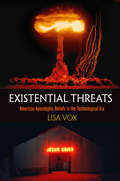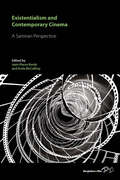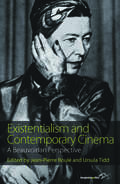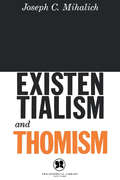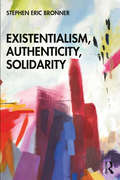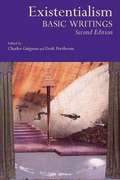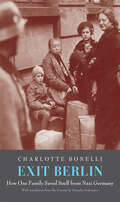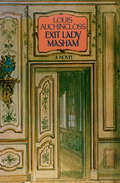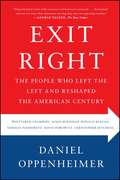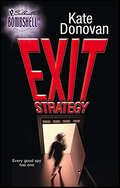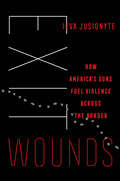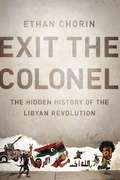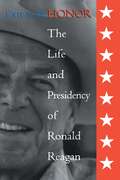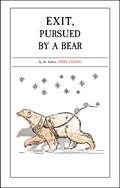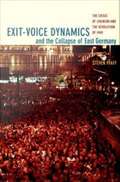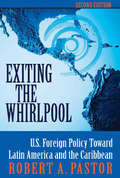- Table View
- List View
Exiles: A Novel
by Ron HansenWith Exiles, Ron Hansen tells the story of a notorious shipwreck that prompted Gerard Manley Hopkins to break years of "elected silence" with an outpouring of dazzling poetry. In December 1875 the steamship Deutschland left Bremen, bound for England and then America. On board were five young nuns who, exiled by Bismarck's laws against Catholic religious orders, were going to begin their lives anew in Missouri. Early one morning, the ship ran aground in the Thames and more than sixty lives were lost—including those of the five nuns. Hopkins was a Jesuit seminarian in Wales, and he was so moved by the news of the shipwreck that he wrote a grand poem about it, his first serious work since abandoning a literary career at Oxford to become a priest. He too would die young, an exile from the literary world. But as Hansen's gorgeously written account of Hopkins's life makes clear, he fulfilled his calling. Combining a thrilling tragedy at sea with the seeming shipwreck of Hopkins's own life, Exiles joins Hansen's Mariette in Ecstasy (called "an astonishingly deft and provocative novel" by The New York Times) as a novel that dramatizes the passionate inner search of religious life and makes it accessible to us in the way that only great art can.
Exilkonstnärernas salong i Kalifornien: Salka Viertel tog emot skådespelare och intellektuella som flydde från nazismen i sin exil
by Núria Añó"Exilkonstnärernas salong i Kalifornien" är en biografi om Salka Viertel, en judisk skådespelerska som emigrerade till Hollywood och blev populärt känd som manusförfattaren till den svenska skådespelerskan Greta Garbo. Dessutom hade hon en salong i Santa Monica, Kalifornien, där en stor del av den europeiska exilintelligentsian samlades. Salka var en mycket modern och intressant kvinna för sin tid, och hon förtjänar att bli känd som hon verkligen är värd. I boken behandlas ämnen som den påstådda bisexualiteten hos Salka Viertel och de många erkända vänner hon hade, såsom Albert Einstein, Charles Chaplin, Sergei Eisenstein, F. W. Murnau, Max Reinhardt, Arnold Schönberg, Thomas Mann, Bertolt Brecht, Greta Garbo, Montgomery Clift, för att nämna några. Liksom Gertrude Stein och andra framstående kvinnor hade hon dessutom sin egen litterära salong, där författare som Truman Capote, Christopher Isherwood, Gore Vidal och många fler deltog. Andra ämnen som tas upp är Berlin på 1920-talet; övergången från stumfilm till ljudfilm, sett från filmens mecka, Hollywood. Sedan Hitlers uppgång och vad det innebar för den judiska situationen; exilen för de intellektuella som inte kunde återvända till sina respektive länder på grund av andra världskriget. Senare, kalla kriget och häxjakten mot kommunismen. Faktum är att Salka Viertels liv och hennes vänners krets berör de stora händelserna under 1900-talet. För detta projekt erhöll författaren stipendier från Shanghai Writing Program (Kina, 2016) och Baltic Centre (Sverige, 2017). "Trots att Salka Viertel var en så central gestalt i exilsamhället, har det skrivits väldigt lite om henne, vilket gör Núria Añós bok till ett korrektiv, och hon fyller många av luckorna i Främlingarna på Mabery Road." —Dialog International "En mycket intressant berättelse och jag tycker fortfarande att den är mycket aktuell, eftersom vi enligt min mening inte har ko
Existence and Machine
by Fabio GrigentiThe aim of this work is to provide a preliminary analysis of a much more far-reaching investigation into the relationship between technology and philosophy. In the context of the contemporary German thought, the author compares the different positions of Karl Marx, Martin Heidegger, Ernst and Friedrich Junger, Arnold Gehlen and Gunther Anders. The term machine is used precisely to mean that complex material device assembled in the last quarter of the 18th century as a result of the definitive modern refinement of certain fundamental technologies, i. e. metallurgy, precision mechanics and hydraulics. The machine discussed here arrived on the scene of man s history when the processes of spinning and weaving were entrusted to semi-automatic means; when the water wheels used in mills, hitherto always made of wood, were supplanted by the metal levers of the steam engine; and especially when the steam engine was connected to the weaving frames, to the metalworking hammers, and to other machines used to manufacture other machines in an endless reiteration of assemblies and applications, the enormous outcome of which is what subsequently came to be described as mass production . The philosophers discussed here were also dealing with the type of machine described above and in their works she we can identify three model images of this idea of machine. These images have been drawn on at various times, also outside the realms of philosophy, and they still provide the backdrop for our knowledge of the machine, which has circulated in a great variety of languages. "
Existence as a Real Property
by Francesco BertoThis profound exploration of one of the core notions of philosophy--the concept of existence itself--reviews, then counters (via Meinongian theory), the mainstream philosophical view running from Hume to Frege, Russell, and Quine, summarized thus by Kant: "Existence is not a predicate." The initial section of the book presents a comprehensive introduction to, and critical evaluation of, this mainstream view. The author moves on to provide the first systematic survey of all the main Meinongian theories of existence, which, by contrast, reckon existence to be a real, full-fledged property of objects that some things possess, and others lack. As an influential addition to the research literature, the third part develops the most up-to-date neo-Meinongian theory called Modal Meinongianism, applies it to specific fields such as the ontology of fictional objects, and discusses its open problems, laying the groundwork for further research. In accordance with the latest trends in analytic ontology, the author prioritizes a meta-ontological viewpoint, adopting a dual definition of meta-ontology as the discourse on the meaning of being, and as the discourse on the tools and methods of ontological enquiry. This allows a balanced assessment of philosophical views on a cost-benefit basis, following multiple criteria for theory evaluation. Compelling and revealing, this new publication is a vital addition to contemporary philosophical ontology.
Existence as a Real Property: The Ontology of Meinongianism (Synthese Library #356)
by Francesco BertoThis profound exploration of one of the core notions of philosophy—the concept of existence itself—reviews, then counters (via Meinongian theory), the mainstream philosophical view running from Hume to Frege, Russell, and Quine, summarized thus by Kant: “Existence is not a predicate.” The initial section of the book presents a comprehensive introduction to, and critical evaluation of, this mainstream view. The author moves on to provide the first systematic survey of all the main Meinongian theories of existence, which, by contrast, reckon existence to be a real, full-fledged property of objects that some things possess, and others lack. As an influential addition to the research literature, the third part develops the most up-to-date neo-Meinongian theory called Modal Meinongianism, applies it to specific fields such as the ontology of fictional objects, and discusses its open problems, laying the groundwork for further research.In accordance with the latest trends in analytic ontology, the author prioritizes a meta-ontological viewpoint, adopting a dual definition of meta-ontology as the discourse on the meaning of being, and as the discourse on the tools and methods of ontological enquiry. This allows a balanced assessment of philosophical views on a cost-benefit basis, following multiple criteria for theory evaluation. Compelling and revealing, this new publication is a vital addition to contemporary philosophical ontology.
Existential Threats: American Apocalyptic Beliefs in the Technological Era
by Lisa VoxAmericans have long been enthralled by visions of the apocalypse. Will the world end through nuclear war, environmental degradation, and declining biodiversity? Or, perhaps, through the second coming of Christ, rapture of the faithful, and arrival of the Antichrist—a set of beliefs known as dispensationalist premillennialism? These seemingly competing apocalyptic fantasies are not as dissimilar as we might think. In fact, Lisa Vox argues, although these secular and religious visions of the end of the world developed independently, they have converged to create the landscape of our current apocalyptic imagination.In Existential Threats, Vox assembles a wide range of media—science fiction movies, biblical tractates, rapture fiction—to develop a critical history of the apocalyptic imagination from the late 1800s to the present. Apocalypticism was once solely a religious ideology, Vox contends, which has secularized in response to increasing technological and political threats to American safety. Vox reads texts ranging from Christianity Today articles on ecology and the atomic bomb to Dr. Strangelove, and from Mary Shelley's The Last Man to the Left Behind series by Tim LaHaye and Jerry B. Jenkins, demonstrating along the way that conservative evangelicals have not been as resistant to science as popularly believed and that scientists and science writers have unwittingly reproduced evangelical eschatological themes and scenarios in their own works. Existential Threats argues that American apocalypticism reflects and propagates our ongoing debates over the authority of science, the place of religion, uses of technology, and America's evolving role in global politics.
Existentialism And Contemporary Cinema
by Enda Mccaffrey Jean-Pierre BoulaAt the heart of this volume is the assertion that Sartrean existentialism, most prominent in the 1940s, particularly in France, is still relevant as a way of interpreting the world today. Film, by reflecting philosophical concerns in the actions and choices of characters, continues and extends a tradition in which art exemplifies the understanding of existentialist philosophy. In a scholarly yet accessible style, the contributors exploit the rich interplay between Sartre's philosophy, plays and novels, and a number of contemporary films including No Country for Old Men, Lost in Translation and The Truman Show, with film-makers including the Dardenne brothers, Michael Haneke, and Mike Leigh. This volume will be of interest to students who are coming to Sartre's work for the first time and to those who would like to read films within an existentialist perspective.
Existentialism and Contemporary Cinema
by Ursula Tidd Jean-Pierre BouleSimone de Beauvoir's work has not often been associated with film studies, which appears paradoxical when it is recognized that she was the first feminist thinker to inaugurate the concept of the gendered 'othering' gaze. This book is an attempt to redress this balance and reopen the dialogue between Beauvoir's writings and film studies. The authors analyse a range of films, from directors including Claire Denis, Michael Haneke, Lucille Hadzihalilovic, Sam Mendes, and Sally Potter, by drawing from Beauvoir's key works such as The Second Sex (1949), The Ethics of Ambiguity (1947) and Old Age (1970).
Existentialism and Thomism
by Joseph C. MihalichPhilosopher Joseph C. Mihalich introduces readers to the famous philosophical movements in his short guide Existentialism and Thomism. Written with a general audience in mind, readers of Mihalich's accessible prose will build the groundwork of their knowledge in these twentieth century political ideologies. Joseph C. Mihalich was an American philosopher and author who specialized in bringing philosophy to a wider audience. In addition to Existentialism and Thomism, he wrote Sports and Athletics: Philosophy in Action.
Existentialism, Authenticity, Solidarity
by Stephen Eric BronnerWhat makes individuals what they are? How should they judge their social and political interaction with the world? What makes them authentic or inauthentic? This original and provocative study explores the concept of "authenticity" and its relevance for radical politics. Weaving together close readings of three 20th century thinkers: Martin Heidegger, Karl Jaspers and Jean-Paul Sartre with the concept of authenticity, Stephen Eric Bronner illuminates the phenomenological foundations for self-awareness that underpin our sense of identity and solidarity. He claims that different expressions of the existential tradition compete with one another in determining how authenticity might be experienced, but all of them ultimately rest on self-referential judgments. The author’s own new framework for a political ethic at once serves as a corrective and an alternative. Wonderfully rich, insightful, and nuanced, Stephen Eric Bronner has produced another bookshelf staple that speaks to crucial issues in politics, philosophy, psychology, and sociology. Existentialism, Authenticity, Solidarity will appeal to scholars, students and readers from the general public alike.
Existentialism: Basic Writings
by Charles B. Guignon Derk PereboomThis book offers a brief introduction to the thought of four figures central to existential philosophy--Kierkegaard, Nietzsche, Heidegger, and Sartre. An introductory chapter presents the basic perspective and concerns of existentialism, and describes its place in the history of philosophy. Similar introductions are provided for each of the four philosophers, followed by selections from their major works. Background readings are also excerpted from works by Hegel and Husserl. No index. c. Book News Inc.
Exit Berlin: How One Woman Saved Her Family from Nazi Germany
by Charlotte R. BonelliCentered around one family&’s preserved personal letters, this is &“an intimate, engaging examination of the plight of German Jewish refugees&” (Kirkus Reviews). Just a week after the Kristallnacht terror in 1938, young Luzie Hatch, a German Jew, fled Berlin to resettle in New York. Her rescuer was an American-born cousin and industrialist, Arnold Hatch. Arnold spoke no German, so Luzie quickly became translator, intermediary, and advocate for family left behind. Soon an unending stream of desperate requests from German relatives made their way to Arnold&’s desk. Luzie Hatch faithfully preserved her letters both to and from far-flung relatives during the World War II era as well as copies of letters written on their behalf. This extraordinary collection, now housed at the American Jewish Committee Archives, serves as the framework for Exit Berlin. Charlotte R. Bonelli offers a vantage point rich with historical context, from biographical information about the correspondents to background on U.S. immigration laws, conditions at the Vichy internment camps, refuge in Shanghai, and many other topics, thus transforming the letters into a riveting narrative. Arnold&’s letters also reveal an unfamiliar side of Holocaust history. His are the responses of an &“average&” American Jew, struggling to keep his own business afloat while also assisting dozens of relatives trapped abroad—most of whom he&’d never met and whose situation he could not fully comprehend. This book contributes importantly to historical understanding while also uncovering the dramatic story of one besieged family confronting unimaginable evil. &“Has as much to teach readers about today&’s world, which is filled with war and displacement, as it does about the world of the 1930s.&” —Kirkus Reviews &“For a generation steeped in email, this heartrending collection of letters takes us to a more intimately communicative era―in which Jews, trapped in the nightmare of Hitler&’s persecution, pleaded for help to escape to their cousins in America; and in which the latter tried desperately, generously, to respond.&” —Michael R. Marrus, author of The Holocaust in History
Exit Interview
by David WestinWhen David Westin became president of ABC News in March 1997, the division was treading water. "It looked like all the really important news was behind us," he writes. Hardly. For the next thirteen years, Westin would preside over ABC News during some of the most important and perplexing events in its history:• President Clinton's impeachment• The tied 2000 presidential election• The 9/11 attacks• Conflicts in Iraq and Afghanistan• The swift boat smear campaign against Senator John KerryExit Interview is a behind-the-scenes look at Westin's tenure and the major news that marked it. He takes us inside the chaos of the newsroom—alongside major players such as Peter Jennings, Barbara Walters, Diane Sawyer, and Bob Woodruff—where what looks clear and certain from the outside is often mired in conflict and urgency. Neither an apologia nor a critique, the book charts the ups and downs of fourteen formative years in network news, addressing basic questions about how our news is reported, from the point of view of someone who was there. With milestones from the recent past, Westin explores the uncertainty inherent in his job, and its central question: Is it possible for journalists to be both good at their jobs and people of good moral character?
Exit Lady Masham: A Novel
by Louis AuchinclossIn this witty historical novel by the author of Watchfires, a poor woman joins the eighteenth-century court of Queen Anne and ends a war.On the Continent, John Churchill, Duke of Marlborough, is laying waste to the lowlands in a bloody combat with Louis XIV. Meanwhile at the British court, Queen Anne, aging, ill, and surrounded by sycophants, is coping with the intrigues of those who wish to promote Marlborough’s dangerous ambitions. Chief among the plotters is his headstrong wife (and court favorite), Sarah Churchill.Into this tense and steamy environment comes young Abigail Hill, Sarah’s impoverished cousin. Sarah has arranged for her to be a maid to the Queen. But Abigail will discover that she has been marked by destiny for a special mission, which is nothing less than to bring to a halt a destructive world war. How she accomplishes this is the subject of this unusual but historically justified tale . . .The drama of court life and high politics, the growing antagonism between Sarah and Abigail, and an engaging cast of characters make for a lively narrative. And the portrait of Queen Anne is a tour de force that lends further depth to this vivid and engaging book.Perfect for fans of the Yorgos Lanthimos film, The Favourite, starring Olivia Coleman and Emma Stone.
Exit Plan: A Novel
by Mike SixsmithBill Sloan, a former British Army intelligence officer and Shahid Al Sheehi, the son of a Pakistani British immigrant are caught up in a breathtakingly ambitious plan for a small Middle Eastern Emirate to seize regional power by acquiring weapons of mass destruction. The destinies of Sloan and Al Sheehi are irrevocably entwined.This novel draws the reader into a realm of political intrigue, characterized by thwarted terrorist plots, international duplicity, and a host of anxious preoccupations including the threat of WMDs. Incredibly timely, as these issues still continue to feature in contemporary headlines, this work acts to set our current perceptions of such issues is context.Well-developed characters populate the pages, living very different lives but influenced by similar factors; a writer in command of his subject matter details their parallel agendas and overlapping imperatives with ease. Informed by his own personal experiences, this novel has a real feel of authenticity, offering an unrivalled insight into the Middle Eastern tensions, which have simmered over the past thirty years, and seeking to illuminate the paradoxes and oppositions of lives ensnared in such realities.
Exit Right
by Daniel OppenheimerA provocative, intimate look at the evolution of America's political soul through the lives of six political figures--from Whittaker Chambers to Christopher Hitchens--who abandoned the left and joined the right.In Exit Right, Daniel Oppenheimer tells the stories of six major political figures whose journeys away from the left reshaped the contours of American politics in the twentieth century. By going deep into the minds of six apostates--Whittaker Chambers, James Burnham, Ronald Reagan, Norman Podhoretz, David Horowitz, and Christopher Hitchens--Oppenheimer offers an unusually intimate history of the American left, and the right's reaction. Oppenheimer is a brilliant new voice in political history who has woven together the past century's most important movements into a single book that reveals the roots of American politics. Through the eyes of his six subjects, we see America grow, stumble, and forge ahead--from World War I up through the Great Depression and World War II, from the Red Scare up through the Civil Rights Movement, and from the birth of neoconservatism up through 9/11 and the dawn of the Iraq War. At its core, Exit Right is a book that asks profound questions about why and how we come to believe politically at all--on the left or the right. Each of these six lives challenges us to ask where our own beliefs come from, and what it might take to change them. At a time of sky-high partisanship, Oppenheimer breaks down the boundaries that divide us and investigates the deeper origins of our politics. This is a book that will resonate with readers on the left and the right--as well as those stuck somewhere in the middle.
Exit Strategy
by Kate DonovanRookie agent Miranda Cutler had looked up to superspy Ray Ortega.Her thanks? He'd seduced her, then left her holding the bag for an ill-fated op that nearly ruined her career while he went into selfimposed exile. One year later, the CIA wanted Miranda to lure Ortega back for a mission so risky, they said only he could handle it.Miranda had a better idea. She would infiltrate the militant group suspected of creating a dangerous new weapon, salvaging her career and ridding herself of Ortega's ghost in one burst of glory. Her assignment to approach Ortega gave her a way in. But nothing could prepare Miranda for what would happen when it was time to get out....
Exit Wounds: How America's Guns Fuel Violence across the Border (California Series in Public Anthropology #57)
by Ieva JusionyteTurns the familiar story of trafficking across the US-Mexico border on its head, looking at firearms smuggled south from the United States to Mexico and their ricochet effects. American guns have entangled the lives of people on both sides of the US-Mexico border in a vicious circle of violence. After treating wounded migrants and refugees seeking safety in the United States, anthropologist Ieva Jusionyte boldly embarked on a journey in the opposite direction—following the guns from dealers in Arizona and Texas to crime scenes in Mexico. An expert work of narrative nonfiction, Exit Wounds provides a rare, intimate look into the world of firearms trafficking and urges us to understand the effects of lax US gun laws abroad. Jusionyte masterfully weaves together the gripping stories of people who live and work with guns north and south of the border: a Mexican businessman who smuggles guns for protection, a teenage girl turned trained assassin, two US federal agents trying to stop gun traffickers, and a journalist who risks his life to report on organized crime. Based on years of fieldwork, Exit Wounds expands current debates about guns in America, grappling with US complicity in violence on both sides of the border.
Exit Wounds: One Australian's War On Terror: Updated Edition
by Greg Bearup Major General John CantwellJohn Cantwell, Queensland country boy, enlisted in the army as a private and rose to the rank of major general. He was on the front line in 1991 as Coalition forces fitted bulldozer blades to tanks and buried Iraqi troops alive. He served in Baghdad in 2006 and saw what a car bomb does to a crowded marketplace. He was commander of Australian forces in Afghanistan in 2010 when ten of his soldiers were killed. He came home in 2011 to be considered for the job of chief of the Australian Army. Instead, he ended up in a psychiatric hospital. Exit Wounds is the deeply human account of one man's tour of the War on Terror, the moving story of life on a modern battlefield: from the nightmare of cheating death in a field strewn with mines, to the utter despair of looking into the face of a dead soldier before sending his body home to his mother. Cantwell hid his post-traumatic stress disorder for decades, fearing it would affect his career. Australia has been at war for the past twenty years and yet there has been no stand-out account from these conflicts - Exit Wounds is it. Raw, candid and eye-opening, no one who reads this book will be unmoved.
Exit into History: A Journey Through the New Eastern Europe
by Eva Hoffman"Indispensable for anyone who wants to seriously come to grips with the experience of Eastern Europe. "-Cleveland Plain Dealer.
Exit the Colonel: The Hidden History of the Libyan Revolution
by Ethan ChorinInExit the Colonel, Ethan Chorin, a longtime Middle East scholar and one of the first American diplomats posted to Libya after the lifting of international sanctions, goes well beyond recent reporting on the Arab Spring to link the Libyan uprising to a flawed reform process, egregious human rights abuses, regional disparities, and inconsistent stories spun by Libya and the West to justify the Gaddafi regime's "rehabilitation. " Exit the Colonel is based upon extensive interviews with senior US, EU, and Libyanofficials, and with rebels and loyalists; a deep reading of local and international media; and significant on-the-ground experience pre- and post-revolution. The book provides rare and often startling glimpses into the strategies and machinations that brought Gaddafi in from the cold, while encouraging ordinary Libyans to "break the barrier of fear. " Chorin also assesses the possibilities and perils for Libya going forward, politically and economically.
Exit with Honor: The Life and Presidency of Ronald Reagan (The\right Wing In America Ser.)
by William E PembertonFew presidents have sparked as much interest in recent years as Ronald Reagan, already the subject of a large number of biographies and specialized subjects. This biography, based on recent research into the Reagan archives and synthesis of the large memoir literature, explores the shaping of his values and beliefs during his childhood in the American heartland, his leadership of the American conservative movement, and his successful political career culminating in the first two-term presidency since Dwight Eisenhower. Pemberton finds Reagan's personal career and ability to understand and communicate with the American people admirable, but finds many of the long-term effects of his presidency harmful.
Exit, Pursued by a Bear
by Greer GilmanHenry Stuart, heir to the British throne, is clever, handsome, a real hero. Unfortunately, he is also tone-deaf in his dealings with the Unseen World. Unbeknownst to him, his ambitious plans for a coming-of-age Faerie court masque have enraged his neighbor monarchs, Oberon and Titania. Seeking recompense, they assign the undead poet Kit Marlowe to bring them the heir.
Exit-Voice Dynamics and the Collapse of East Germany: The Crisis of Leninism and the Revolution of 1989
by Steven PfaffWinner of the Social Science History Association President's Book Award East Germany was the first domino to fall when the Soviet bloc began to collapse in 1989. Its topple was so swift and unusual that it caught many area specialists and social scientists off guard; they failed to recognize the instability of the Communist regime, much less its fatal vulnerability to popular revolt. In this volume, Steven Pfaff identifies the central mechanisms that propelled the extraordinary and surprisingly bloodless revolution within the German Democratic Republic (GDR). By developing a theory of how exit-voice dynamics affect collective action, Pfaff illuminates the processes that spurred mass demonstrations in the GDR, led to a peaceful surrender of power by the hard-line Leninist elite, and hastened German reunification. While most social scientific explanations of collective action posit that the option for citizens to emigrate--or exit--suppresses the organized voice of collective public protest by providing a lower-cost alternative to resistance, Pfaff argues that a different dynamic unfolded in East Germany. The mass exit of many citizens provided a focal point for protesters, igniting the insurgent voice of the revolution. Pfaff mines state and party records, police reports, samizdat, Church documents, and dissident manifestoes for his in-depth analysis not only of the genesis of local protest but also of the broader patterns of exit and voice across the entire GDR. Throughout his inquiry, Pfaff compares the East German rebellion with events occurring during the same period in other communist states, particularly Czechoslovakia, China, Poland, and Hungary. He suggests that a trigger from outside the political system--such as exit--is necessary to initiate popular mobilization against regimes with tightly centralized power and coercive surveillance.
Exiting The Whirlpool
by Robert PastorIn this second edition of Exiting the Whirlpool, Pastor explores the continuities and the changes in U.S. foreign policy toward Latin America under Presidents Carter, Reagan, Bush, and Clinton. Whereas many foreign policy volumes neglect the role of Congress, Pastor devotes an entire chapter to explaining how it has shaped policy. Next, he looks at the recurring challenges that have often pulled the United States into the destructive whirlpool-how the United States has tried but often failed to manage succession crises, pre-empt or undermine revolutionaries, promote or manipulate elections, and encourage or neglect the region's economic development. Pastor offers a series of far-reaching policy recommendations for exiting the whirlpool and forging a hemispheric community of democracies within a free trade area. The first edition was widely acclaimed. The second is thoroughly updated, offering analyses and recommendations for addressing the contemporary democratic and security challenges facing the hemisphere.




